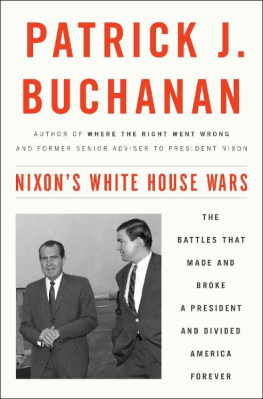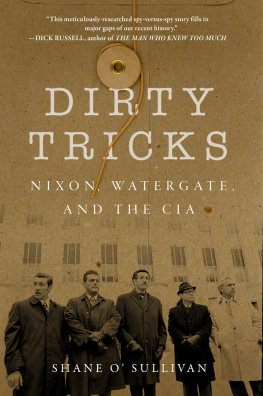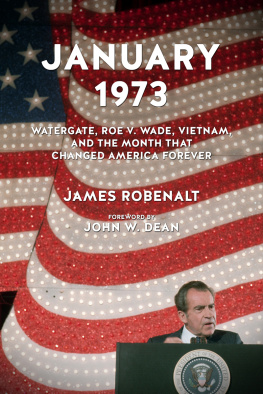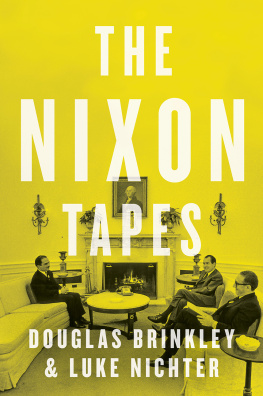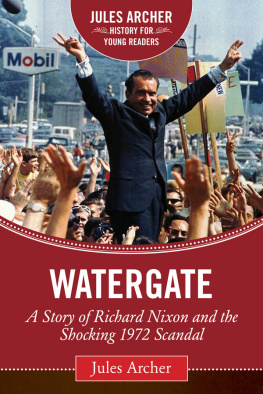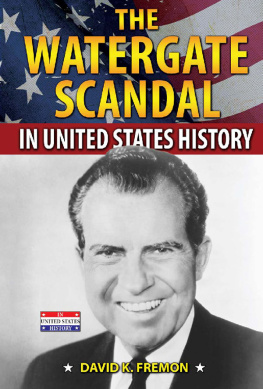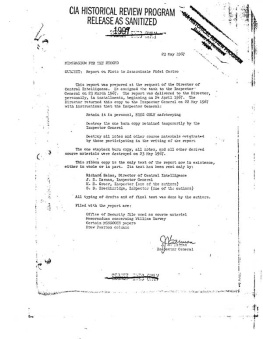Ken Hughes - Chasing Shadows: The Nixon Tapes, the Chennault Affair, and the Origins of Watergate
Here you can read online Ken Hughes - Chasing Shadows: The Nixon Tapes, the Chennault Affair, and the Origins of Watergate full text of the book (entire story) in english for free. Download pdf and epub, get meaning, cover and reviews about this ebook. year: 2014, publisher: University of Virginia Press, genre: Romance novel. Description of the work, (preface) as well as reviews are available. Best literature library LitArk.com created for fans of good reading and offers a wide selection of genres:
Romance novel
Science fiction
Adventure
Detective
Science
History
Home and family
Prose
Art
Politics
Computer
Non-fiction
Religion
Business
Children
Humor
Choose a favorite category and find really read worthwhile books. Enjoy immersion in the world of imagination, feel the emotions of the characters or learn something new for yourself, make an fascinating discovery.

- Book:Chasing Shadows: The Nixon Tapes, the Chennault Affair, and the Origins of Watergate
- Author:
- Publisher:University of Virginia Press
- Genre:
- Year:2014
- Rating:4 / 5
- Favourites:Add to favourites
- Your mark:
Chasing Shadows: The Nixon Tapes, the Chennault Affair, and the Origins of Watergate: summary, description and annotation
We offer to read an annotation, description, summary or preface (depends on what the author of the book "Chasing Shadows: The Nixon Tapes, the Chennault Affair, and the Origins of Watergate" wrote himself). If you haven't found the necessary information about the book — write in the comments, we will try to find it.
The break-in at Watergate and the cover-up that followed brought about the resignation of Richard Nixon, creating a political shockwave that reverberates to this day. But as Ken Hughes reveals in his powerful new book, in all the thousands of hours of declassified White House tapes, the president orders a single break-in--and it is not at the Watergate complex. Hughess examination of this earlier break-in, plans for which the White House ultimately scrapped, provides a shocking new perspective on a long history of illegal activity that prolonged the Vietnam War and was only partly exposed by the Watergate scandal.
As a key player in the University of Virginias Miller Center Presidential Recordings Program, Hughes has spent more than a decade developing and mining the largest extant collection of transcribed tapes from the Johnson and Nixon White Houses. Hughess unparalleled investigation has allowed him to unearth a pattern of actions by Nixon going back long before 1972, to the final months of the Johnson administration. Hughes identified a clear narrative line that begins during the 1968 campaign, when Nixon, concerned about the impact on his presidential bid of the Paris peace talks with the Vietnamese, secretly undermined the negotiations through a Republican fundraiser named Anna Chennault. Three years after the election, in an atmosphere of paranoia brought on by the explosive appearance of the Pentagon Papers, Nixon feared that his treasonous--and politically damaging--manipulation of the Vietnam talks would be exposed. Hughes shows how this fear led to the creation of the Secret Investigations Unit, the White House Plumbers, and Nixons initiation of illegal covert operations guided by the Oval Office. Hughess unrivaled command of the White House tapes has allowed him to build an argument about Nixon that goes far beyond what we think we know about Watergate.
Chasing Shadows is also available as a special e-book that links to the massive collection of White House tapes published by the Miller Center through Rotunda, the electronic imprint of the University of Virginia Press. This unique edition allows the reader to move seamlessly from the book to the recordings expertly rendered transcripts and to listen to audio files of the remarkable--and occasionally shocking--conversations on which this dark chapter in American history would ultimately turn.
Ken Hughes: author's other books
Who wrote Chasing Shadows: The Nixon Tapes, the Chennault Affair, and the Origins of Watergate? Find out the surname, the name of the author of the book and a list of all author's works by series.

